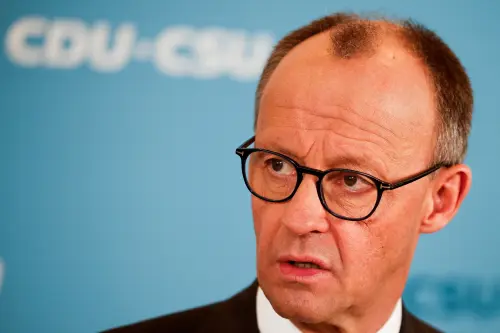A bold move by Germany’s prime minister-in-waiting Friedrich Merz to ease longstanding caps on government spending has garnered international praise, yet signs of potential domestic political backlash are emerging.
His conservative Christian Democratic Union (CDU) and their Bavarian allies, the Christian Social Union (CSU), have traditionally positioned themselves as guardians of fiscal responsibility and are now taken aback by Merz's unexpected willingness to endorse higher debt.
An INSA poll revealed that 73% of all voters and 44% of CDU/CSU supporters feel misled. Support for the CDU/CSU dipped one point to 27%, while the far-right Alternative for Germany (AfD) gained one point to 23%. This narrows the margin between the two parties to just four points, halving the gap from a month ago.
"The CDU/CSU has failed to deliver on its pre-election promises with the debt package," said INSA head Hermann Binkert. "Some disappointed voters are turning to the AfD."
Merz announced this significant shift in spending—agreed upon with the Social Democrats—just nine days after winning the election on February 23, a campaign during which he assured voters that he would not loosen spending restrictions.
Last week, Parliament abandoned decades of fiscal conservatism in an effort to stimulate economic growth and increase military spending in response to a new era of European collective defense as the U.S. reduces its involvement in Europe.
However, CDU voters are deeply divided over this change and its rationale.
"If America no longer helps us, we have to defend ourselves," stated Juergen Feddersen, born in 1944 at the end of World War II.
Feddersen, a lifelong CDU supporter, expressed skepticism towards Russian President Vladimir Putin: "We have to because Russia will not calm down. I don't trust him," he remarked, previously a firm proponent of the debt brake instituted by former CDU chancellor Angela Merkel to limit government borrowing.
There is widespread public support for increased military and defense spending, driven by the changing threat landscape for Germany and Europe, according to Andrea Wolf of the polling organization Forschungsgruppe Wahlen.
However, voter responses to Merz's decision will likely become evident in upcoming polls. "It is quite likely that this will cost support for the CDU/CSU and Friedrich Merz," Wolf noted.
Many younger CDU supporters are concerned that the responsibility for financing the new spending will fall on their shoulders, exacerbating challenges for a generation already struggling with housing affordability and fears about future pension and welfare entitlements.
"I worry that it will be my generation facing the burden of additional debt because it will need to be repaid at some point," said Janik Wiemann, 26, a social services worker in Lemgo and chair of the youth section of the CDU's welfare policy wing, the CDA.
Before the election, Merz stated that today's debts lead to tomorrow's tax increases.
A separate poll by Forsa last week also indicated the gap between the CDU and AfD has closed to just four points.
"If citizens' expectations are once again disappointed by the new federal government, it cannot be ruled out that the AfD could emerge as the strongest party in the next general election, not just in eastern Germany, but across the country," said Manfred Guellner, head of Forsa.
